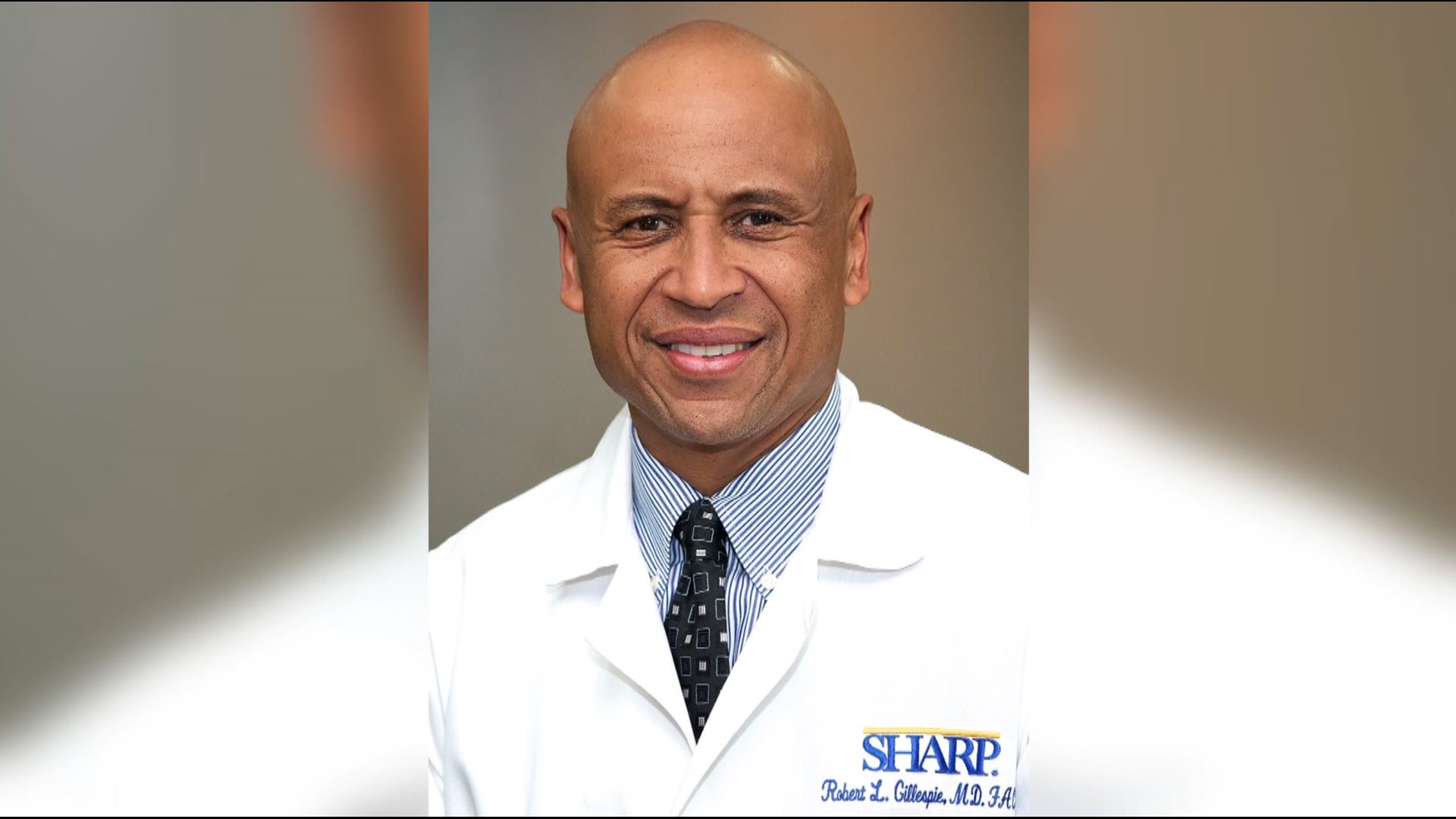SAN DIEGO — February is Black History Month and as this year’s theme is Black health and wellness, we asked Dr. Robert Gillespie the struggles and triumphs African American doctors go through.
Dr. Gillespie, or as his patients call him, Dr. G, is a cardiologist at Sharp Medical Group in San Diego and has worked in the medical profession for almost 30-years.
"I always tell people with the white coat on, I never had any problems. The daily interactions we have outside without the white coat, when people don't know you're Dr.Gillespie - that creates certain levels of stress,” said Dr. G.
He explained how becoming a doctor was always his destiny. However, being a Black kid from Indiana in the late ’60s and with such strong aspirations, came with barriers.
“I have to tell you there have been many barriers, growing up in Indiana. We were just becoming a racially diverse part of town. And as a result, there was a lot of friction between Blacks, whites and different racial groups. And I point this out many times in my presentations, the racial tension there was very steep,” said Dr. G.
He had to endure discouraging remarks made by professors, neighbors and colleagues, in a system built on having larger roadblocks for minorities.
“If you look at statistics for African Americans nationwide we make about 13.5% of the population, but we make up about 5% of the physician pool,” said Dr. G.
In spite of it all, he persevered, showing other young aspiring doctors that he never let race get in the way of the long work hours and sweat he put in medical school. Promoting that whites, Blacks and all other races can become doctors too.
Dr. Gillespie also added that a prestigious title like his is earned by the amount of work you put in, not by the color of your skin.
“One of the things that keeps me going, no matter what’s going on in my life is the beauty of medicine and the impact you can have on those around you," said Dr. G.
However, in 2020, an even larger roadblock fell onto Dr. G and every other medical professional, the coronavirus pandemic, overwhelming hospitals and traumatizing those on the front lines.
“It was scary to even go into the hospital because we didn’t know what to expect," Dr. G said. "We were seeing people deathly ill and dying. In many cases, we had very little knowledge.”
A cardiologist mainly focuses on monitoring and testing a patient's heart, but with the surge of the pandemic, his duties quickly changed. If that wasn’t stressful enough medical professionals are now having to deal with misinformation.
“Part of the reason African Americans, Hispanics, or Latinx Americans haven’t done so well, has to do with a level of interaction with healthcare. The mistrust for healthcare, the lack of not necessarily having someone who looks like them, care for them. That does matter to historically disadvantaged populations,” said Dr. G.
That is why Dr. G has taken matters into his own hands and continues to educate minorities in San Diego's underserved communities, aking sure that everyone understands the dangers of this virus and reaffirming how the vaccine reduces risks.
WATCH RELATED: Black History Month | Mental Health Campaign

